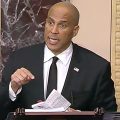
Financial guru Suze Orman recently issued a stark warning: America needs a serious conversation about its relationship with money. She points to a widespread problem of financial denial, where many people pretend they can’t afford to save, even when they could make small adjustments to their spending habits. This isn’t just about pinching pennies; it’s about a fundamental shift in priorities.
Orman’s message centers on a simple, yet powerful, philosophy: people first, then money, then things. In a society obsessed with accumulating possessions and keeping up with the Joneses, this prioritization often gets flipped. We chase the latest gadgets, the biggest houses, and the most luxurious vacations, neglecting the fundamental needs of our well-being and financial security. This unsustainable lifestyle leads to crippling debt and a constant feeling of being overwhelmed.
The core of the problem, Orman suggests, is a lack of honest self-assessment. Many people avoid facing their financial realities, burying their heads in the sand rather than creating a realistic budget and saving plan. This avoidance perpetuates a cycle of debt and financial instability, preventing them from achieving long-term financial goals and creating a sense of security for themselves and their families. Building a solid financial foundation requires a degree of discipline and planning, but the rewards – peace of mind, financial independence, and the ability to pursue dreams – far outweigh the effort.
Orman’s call to action is clear: we need to prioritize our well-being and financial health. This means creating a realistic budget, tracking expenses, and identifying areas where we can cut back. It means setting financial goals, even small ones, and consistently working towards them. It’s about making conscious choices that align with our values and long-term aspirations, rather than being driven by impulsive purchases and societal pressures.
Ultimately, Orman’s message is a reminder that true wealth isn’t measured in dollars and cents alone. It’s about having the financial freedom to live a life that is fulfilling and meaningful, prioritizing our needs and the well-being of ourselves and those we care about. It’s a message worth considering as we navigate the complexities of modern finance.










